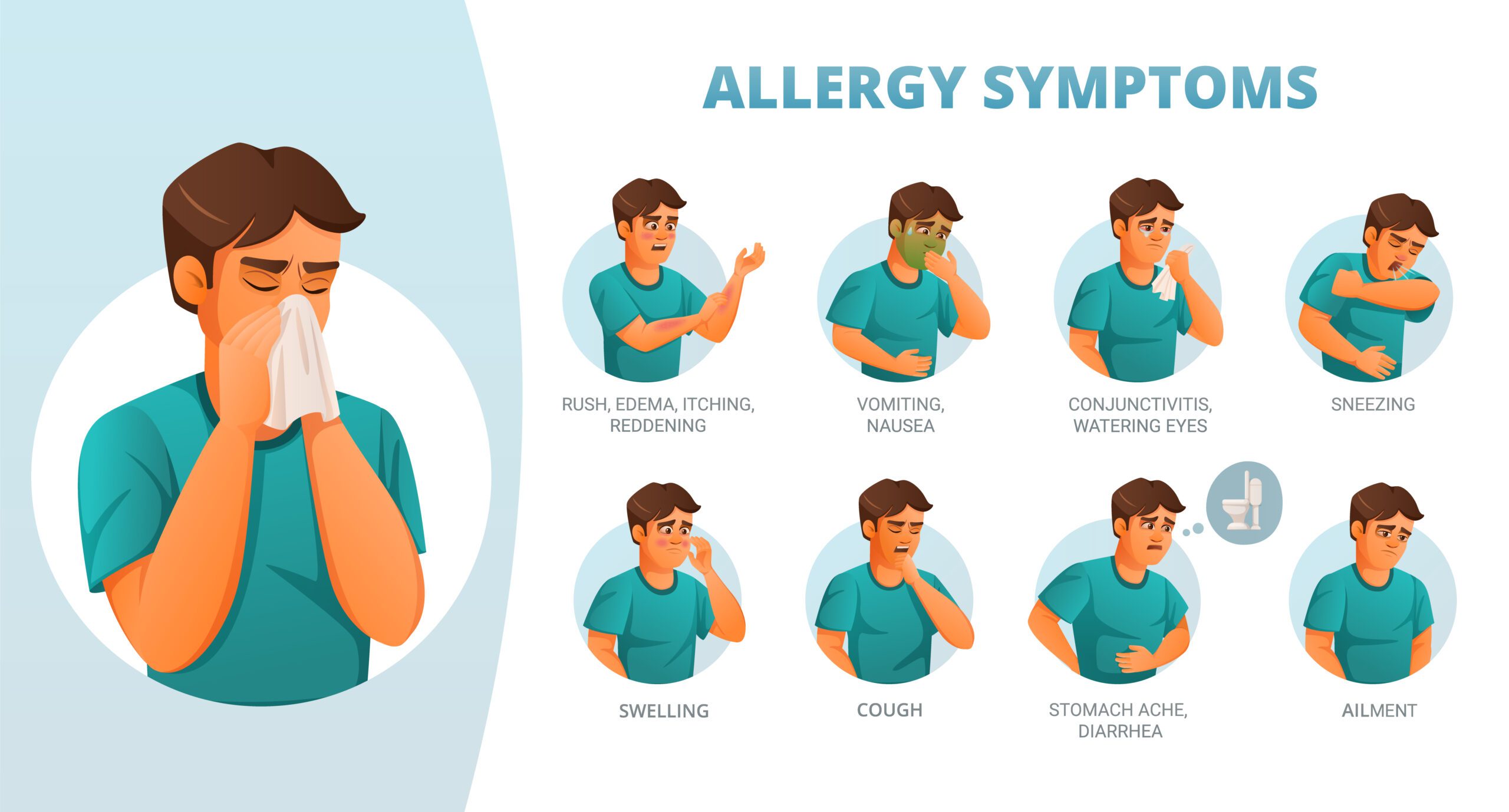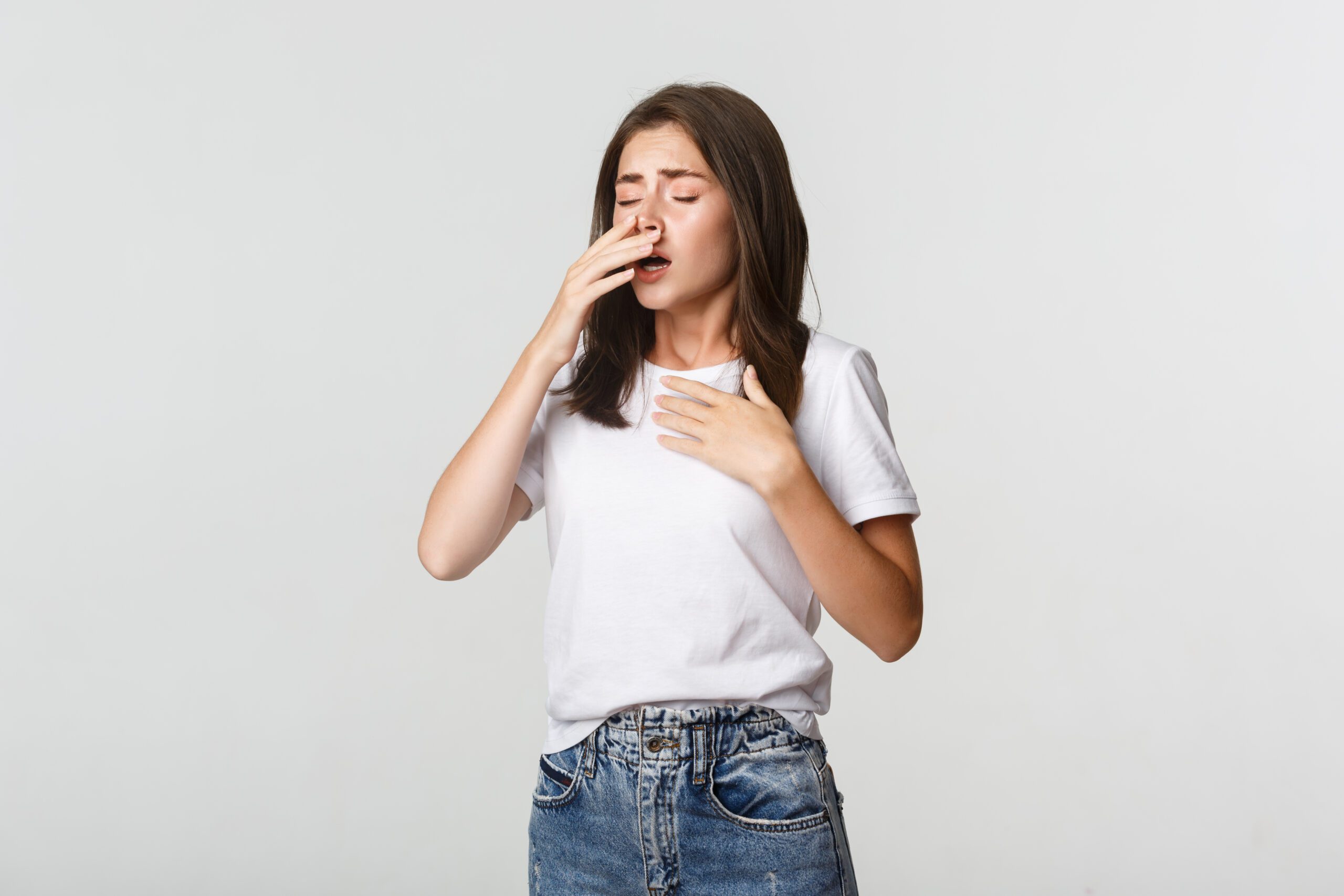Do you start your day with a sneezing fit? You’re not alone. Many people wake up every morning reaching for tissues before they’ve even had their first sip of water. While it may feel random or even amusing at times, repeated morning sneezing is usually your body’s way of telling you something.
For some, it’s dust mites hiding in bedding. For others, it’s pollen from an open window, a sudden blast of cool air from the fan, or even the body’s immune system overreacting to harmless triggers. Morning sneezing can be inconvenient, but it’s also a valuable signal that deserves attention.
Let’s look at why it happens, how allergies play a role, and the simple lifestyle changes and holistic remedies that can bring lasting relief.
Morning Sneezing Explained
One of the most common reasons for morning sneezing is allergic rhinitis. This condition occurs when your immune system overreacts to harmless particles such as dust, pollen, or pet dander. The body mistakes them as invaders and releases histamines — chemicals that trigger sneezing, itching, and nasal congestion.
Typical symptoms of morning sneezing allergy include:
- Repeated sneezing fits on waking
- Runny or blocked nose
- Itchy or watery eyes
- Scratchy throat
- Itching in the roof of the mouth
- Morning nasal congestion that eases later in the day
These reactions can be worsened if your immunity is low, if you’re exposed to irritants like smoke or perfumes, or if stress and poor sleep are already straining your system. Morning sneezing doesn’t just disturb your mornings — if ignored, it can leave you feeling fatigued and foggy throughout the day.
| 💡 Did You Know? Pollen counts are usually highest between 5–10 am, which is why many people find their sneezing spells worse at the start of the day. |

Morning Sneezing Explained: Why Do I Sneeze Every Morning?
If you’ve ever wondered “why do I sneeze every morning?”, you’re not alone. Sneezing at the start of the day is surprisingly common, and while it may seem harmless, it often points to specific triggers in your environment or body. Understanding these causes can help you take simple steps toward relief.
Here are the most common reasons behind morning sneezing:
- Dust mites in bedding: Microscopic dust mites thrive in mattresses, pillows, and blankets. Their droppings can irritate your nasal passages, especially after hours of sleep in close contact.
- Pollen exposure from open windows: If your windows are open, you may wake up with sneezing fits triggered by pollen particles.
- Temperature changes: Sudden shifts in air — from a fan, air conditioner, or even the cool morning breeze — can irritate sensitive nasal linings.
- Sinus or nasal sensitivity: If you have congestion, sinus inflammation, or an overactive nasal reflex, your nose may react to even mild changes in airflow or dust.
- Allergic Rhinitis: The most common reason. This immune reaction makes your body treat harmless particles like dust or pet dander as threats, leading to sneezing and congestion.
Please Note: Many people assume that waking up with sneezing automatically means they have allergic rhinitis, but that’s not always true. Morning sneezing is a symptom, while allergic rhinitis is a chronic condition caused by an immune reaction to allergens like dust mites, pollen, or pet dander. In allergic rhinitis, symptoms such as nasal congestion, runny nose, and itchy eyes persist regularly and are often triggered by exposure to specific allergens. On the other hand, occasional morning sneezing can occur due to dry air, changes in temperature, or even the body’s natural effort to clear the nasal passages after sleep. In short, allergic rhinitis can cause morning sneezing — but not all morning sneezing means you have allergic rhinitis.

Morning sneezing isn’t random — it’s your body responding to these triggers. The good news? Once you know the cause, it becomes easier to address.
🕊️ The Hidden Trigger for the Morning Sneezing Allergy Most People MissWhen it comes to morning sneezing, most people immediately think of dust, pollen, or temperature changes. But in our consultations, we often uncover causes that go far beyond the obvious — and one of the most surprising is pigeon droppings. Yes, you read that right. In many urban homes, especially where windows are left open or balconies are shared with birds, pigeons tend to build nests in outdoor AC vents. Over time, their droppings dry up, become powdery, and get sucked into your home through the air conditioner when it’s switched on. What you’re breathing in isn’t just air — it’s a mix of fine, invisible particles that can irritate your nasal passages and trigger allergic sneezing or even respiratory discomfort. We’ve seen this pattern repeatedly with clients who had “mystery allergies” that refused to settle until they cleaned their AC units. Here’s what you can do: Sometimes, the solution isn’t in stronger medication — it’s in looking a little closer at your surroundings. |
Here’s a quick glance at the triggers and their quick fixes:
| Morning Sneezing Symptom and Trigger | Simple Fix and Remedies |
| Dust mites in bedding | Wash bedding weekly, use dust-proof covers |
| Pollen from open windows | Keep windows closed during early hours |
| Temperature changes (AC/fan) | Use moderate settings, avoid direct drafts |
| Sinus/nasal sensitivity | Try steam inhalation or saline rinses |
| Allergic rhinitis | Visit your healthcare practitioner for due treatment. |
Sneezing in Morning Treatment: Natural & Holistic Approaches
If you’re tired of starting your day with sneezing fits, the good news is that small, consistent changes can bring big relief. Here are natural and holistic ways to manage sneezing in the morning:
At Home Treatments and Remedies for Morning Sneezing
Bedroom Hygiene
Your bedroom is often the biggest source of allergens. Wash bedding in hot water once a week, use dust-proof covers for pillows and mattresses, and keep the room well-ventilated. A clutter-free space reduces dust buildup and helps your nose rest easy at night.
Nasal Rinses & Steam Inhalation
A simple saline rinse or neti pot (under professional guidance) can clear allergens lodged in your nasal passages. Steam inhalation with a few drops of eucalyptus oil can soothe congestion and reduce irritation.
Strengthening Immunity
A stronger immune system reacts less aggressively to allergens. Include Vitamin C-rich fruits, zinc from nuts and seeds, adequate hydration, and probiotic foods like curd or fermented vegetables to support your gut and immunity.
Stress & Sleep Connection
Poor sleep and high stress make your immune system more reactive. Focus on good sleep hygiene and add calming practices like breathwork or meditation to lower stress levels.
Warm Water Compress
Applying a warm water compress over the sinuses helps open up blocked nasal pathways. The gentle heat reduces sinus pressure, eases inflammation, and supports easier breathing in the mornings.
Herbal & Natural Remedies for Morning Sneezing
Traditional remedies often bring comfort: tulsi tea for its anti-inflammatory properties, turmeric milk for reducing histamine response, and raw honey (in moderation) for soothing the throat. Do this only if it suits you.
Here’s a recipe that may help you!
Magic Lung Tea
A soothing, time-tested home remedy that we often recommend to clients for easing allergies, relieving congestion, and supporting natural lung cleansing.
Ingredients:
- 1-inch piece of fresh ginger or 1 tsp dried ginger powder
- 1 Ceylon cinnamon stick or ¼ tsp Ceylon cinnamon powder
- ½ tsp basil (tulsi, fresh or dried)
- 1 tsp oregano (fresh or dried)
- 3 peppercorns
- 2 crushed cardamoms (elaichi)
- ¼ tsp fennel seeds (saunf)
- A pinch of bishop’s weed (ajwain)
- ¼ tsp cumin (jeera)
- 1–2 crushed garlic cloves (optional)
Method:
- Add all the ingredients to 2 cups of water and bring to a boil.
- Let it simmer for about 10 minutes, then strain and sip warm.
- If you like a touch of sweetness, add a little raw honey or jaggery once the tea has cooled slightly.
This blend works beautifully to open up the airways, reduce inflammation, and support overall respiratory health — especially during seasonal changes.
Disclaimer: Always consult your doctor, nutritionist, or healthcare provider before making any changes to your diet, lifestyle, or medication. The information shared here is based on holistic and integrative principles, and individual needs may vary.

Breathwork & Pranayama for Morning Sneezing Relief
Simple breathing exercises can be powerful for sinus relief and calming allergic responses. Anulom Vilom (alternate nostril breathing) helps clear nasal passages, while gentle Bhramari (humming bee breath) reduces inflammation and calms the nervous system. Just 5–10 minutes daily can improve airflow and support long-term respiratory health.
Anulom Vilom (Alternate Nostril Breathing)
A simple and deeply balancing breath practice that clears nasal passages, soothes the nervous system, and enhances lung capacity.
Steps:
- Sit comfortably with your spine straight and shoulders relaxed.
- Use your right hand: fold your index and middle fingers inward, leaving your thumb, ring, and little finger free.
- Gently close your right nostril with your thumb.
- Inhale slowly and deeply through your left nostril.
- Close your left nostril with your ring finger, then release your right nostril.
- Exhale slowly and completely through the right nostril.
- Now inhale through the right nostril, close it with your thumb, and exhale through the left nostril.
- This completes one full round.
- Continue for 5–10 rounds (about 5 minutes), breathing gently without strain.
Tip: Always begin and end on the left nostril. Practice on an empty stomach in a quiet space.
Bhramari Pranayama (Humming Bee Breath)
A calming breath that reduces inflammation, relieves sinus pressure, and quiets a racing mind.
Steps:
- Sit comfortably with eyes closed and shoulders relaxed.
- Place your thumbs on your ears to gently block external sounds.
- Rest your index fingers on your forehead, and let the remaining fingers lightly close your eyes.
- Take a deep breath in through your nose.
- As you exhale slowly, make a soft humming sound — like a bee — in your throat. Feel the vibration through your face and head.
- Continue for 5–7 rounds, maintaining a slow, rhythmic breath.
Tip: Keep your mouth closed throughout. The vibration should feel soothing, not forced.
Practice in the morning or before bed to calm the mind and ease nasal congestion.
These gentle practices help reduce the intensity of morning sneezing and support long-term balance, instead of masking symptoms.
When to Seek Professional Help
Most morning sneezing can be managed with simple changes, but there are times when professional support is essential. If sneezing is persistent and interferes with daily life, or if you experience wheezing, shortness of breath, chest tightness, or recurring severe allergies, don’t ignore it. These may be signs of allergic rhinitis progressing or a deeper respiratory issue that needs medical care.
Final Word: Listen to What Your Mornings Are Telling You
Morning sneezing can be uncomfortable, but it’s also your body communicating — reminding you to slow down, observe, and adjust. Not every symptom needs panic or a fad remedy; sometimes it simply needs understanding. In our work with clients, we’ve seen that real, lasting relief comes from balance — not extremes.
So before you try every trending ‘detox’ or eliminate entire food groups, take a step back. Work alongside your doctor or nutritionist to find the root cause and tailor solutions that respect your unique body.
Your body has a beautiful intelligence — it’s always trying to heal and protect you. The goal isn’t to fight it, but to work with it. When you do that, even something as ordinary as a morning sneeze becomes a reminder of how deeply connected your environment, habits, and health truly are.
Ready to take the first step towards a healthier you?
Start small, with one manageable change today.
Know more about our Wellness Program.
Set up a one-on-one consultation with our integrative team by reaching out to us at1800 102 0253 or write to us at consults@lukecoutinho.com.
Disclaimer
This blog is for general informational and educational purposes only. It is not intended to replace medical advice, diagnosis, or treatment from a qualified healthcare professional. Always consult your doctor, nutritionist, or healthcare provider before making any changes to your diet, lifestyle, or medication. The information shared here is based on holistic and integrative principles, and individual needs may vary.

Team Luke
Start Your Wellness Journey
Feeling inspired to take the next step in your wellness journey? Connect with us to explore how our tailored programs can support your health journey. Your transformation is just a conversation away.



